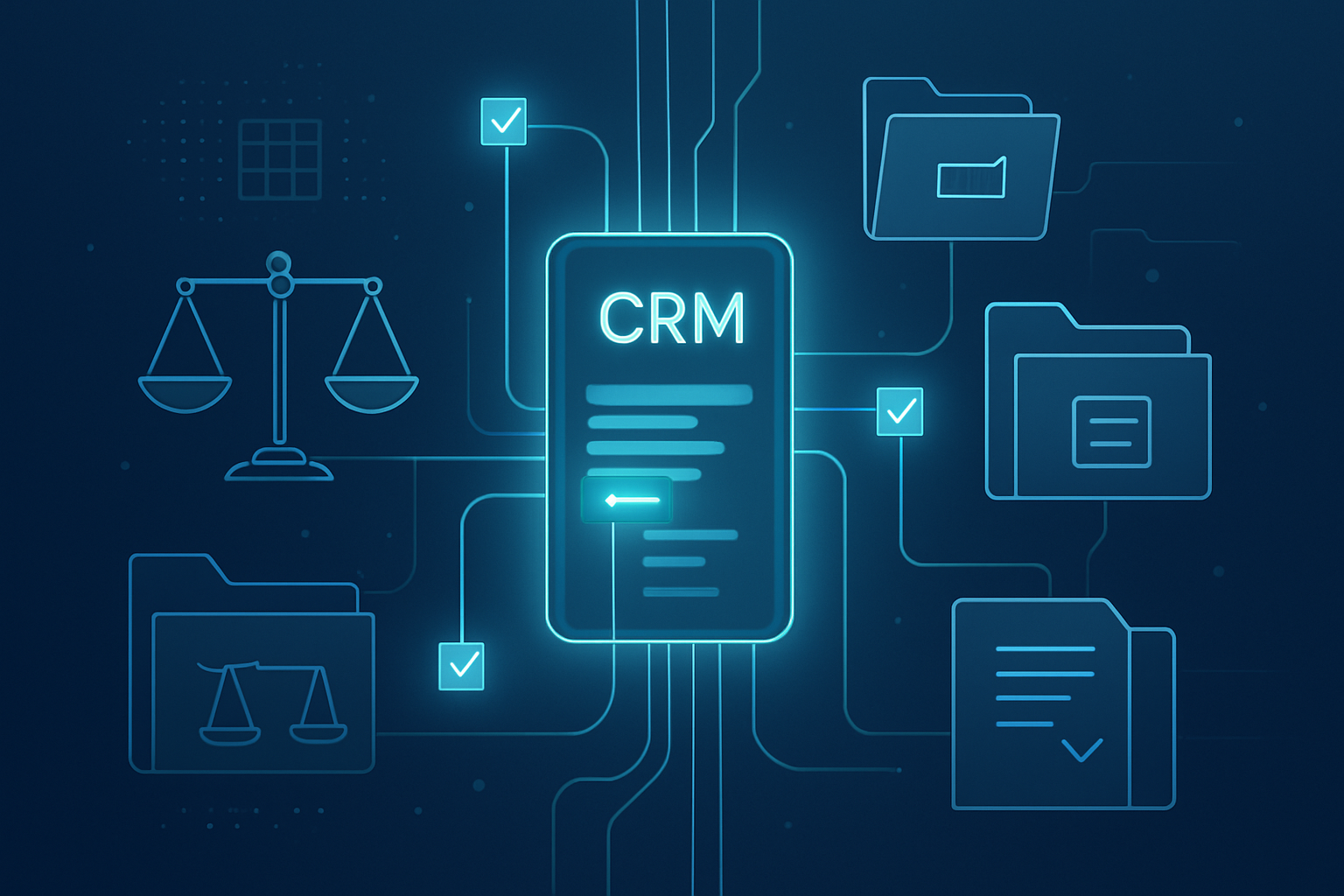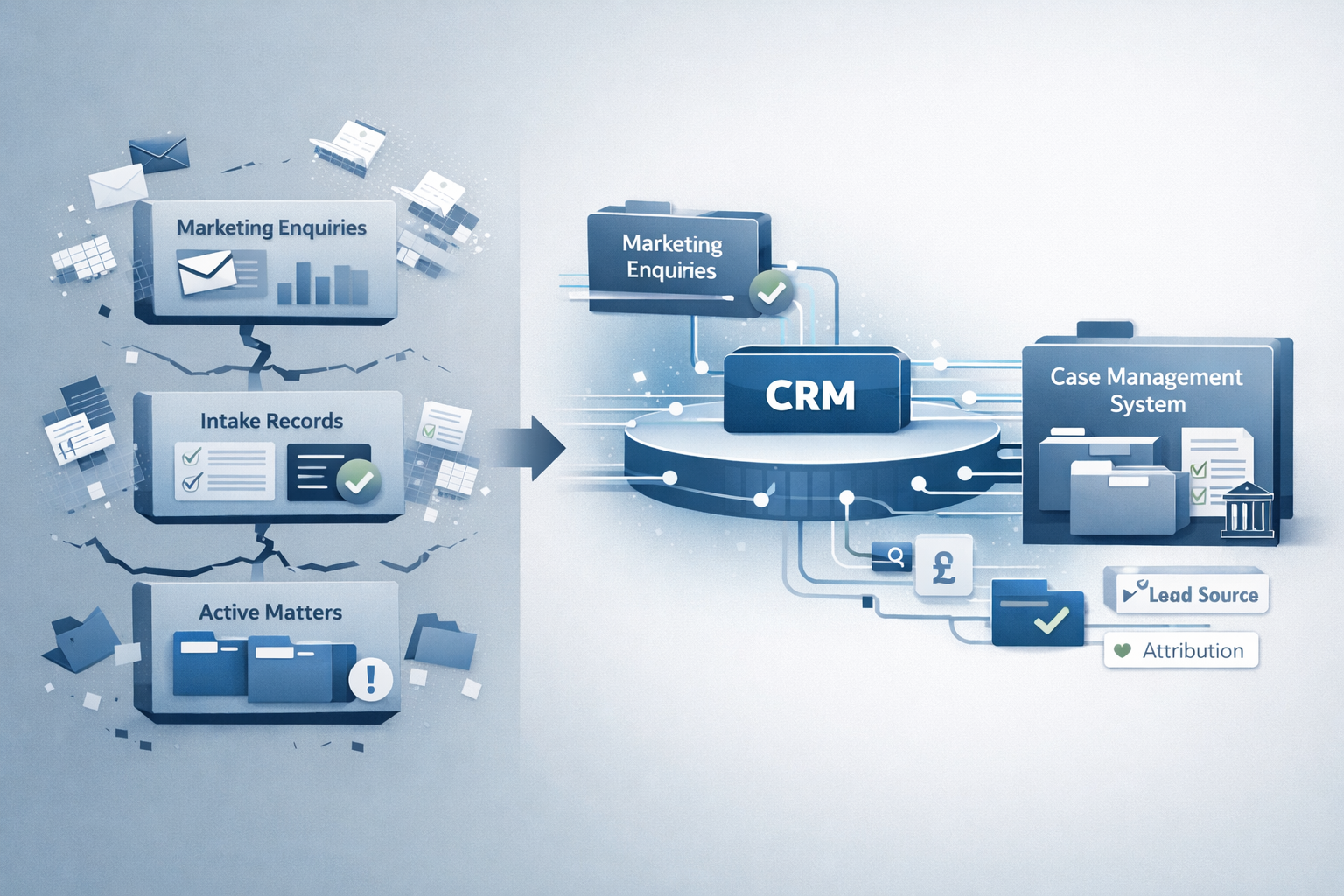How digital transformation can revolutionise professional services
Digital Transformation

Like it or not, we are in the middle of a digital revolution…
Digital has taken over everything we do in our personal and work lives. But you already knew that right? You probably wouldn’t be reading an online blog if you weren’t part of the revolution yourself.
Some of you will love digital and have fully embraced it, while perhaps others among you wish it would just go away. However, digital is here to stay and it will only engrain itself deeper and deeper into our lives.
The professional services industry has been notoriously slow to embrace the digital revolution and, in fact, many firms still don’t have any sort of clear digital strategy. This seems incredible - tech firms, hi-tech manufacturing and large retailers made the jump to cyberspace over a decade ago. Professional service firms have generally let themselves remain behind the rest.
While many firms will be doing a few bits of digital marketing here and there… sparse posting on social media channels, creating a website etc... it’s not enough to really make a huge difference to their business. Actually, an inferior and unclear digital strategy can have a negative effect on your business and deter potential new leads.
In general, professional service firms have reacted in a largely disjointed manner… Some, for instance, will focus on generating leads using adverts, but will be sending people to a website built in 2004 with no brand or messaging. Others will send the odd newsletter out to their entire database and wonder why their open rate is so low… The majority will spend thousands marketing their businesses on and offline yet won’t be able to prove any sort of ROI.
As you can tell, I could go on and on here, but I am going to stop being preachy now and instead, let’s talk about a solution to all this. A practical solution which a firm can get behind fully and see tangible results at the end.
I am talking about digital transformation!
“Isn’t that just another buzzword?” I hear you cry…
Let’s find out.
Digital transformation… The low down
It’s really pretty self explanatory; digital transformation in essence is taking your firm from where it is at the moment - perhaps fragmented, archaic and behind the times - and turning it into a modern digital business - ready for the demands of the modern consumer environment.
Digital transformation is not about moving to digital records from paper, or doing your accounts on Excel. It entails a profound shift in your entire business culture. It is a single leap that takes a business from 2008 to 2018.
Let me be clear, a digital transformation project isn’t something that is going to happen overnight (or even in a few months!). It’s a big project that in a way is really going to change your entire business and how it operates… Maybe not in terms of the services you offer, but in the way you reach and present them to your audience; your marketing strategy.
Why go digital?
I am going to give you an example that will illustrate how you must embrace the future and go digital if you want to remain at the top of your game.
Think of a small professional services company run by a lady called Mrs Smith. At the moment, Mrs Smith is doing relatively well. Through referrals alone she receives enough new clients to sustain her business and maybe even grow slightly, while her dedicated team provides a service that receives regular accolades and is well established in her local area. Why should Mrs Smith undertake a complicated (and possibly costly) digital transformation?
I have some rather uncomfortable news for Mrs Smith and owners of similar businesses - the way prospective clients engage with firms like hers is changing rapidly. So quickly, that the modern consumer market bares little resemblance to that of the nineties (or even the noughties!). If this fact has not already had a large impact on the operations of your firm, it soon will...
Professional services firms that have not yet undergone a digital transformation and have not seen a fall in revenue are occupying what I call a lag period - a lag period where generally older clientele, who do not rely on the internet to fulfil their service needs, still engage with the company sufficiently to sustain its revenues.
However, the size of the non-digital consumer market is declining. Between now and 2020, there will be an 800% growth in the amount of mobile data we use. Even older consumers increasingly use search engines to fulfil their service need. Unless firms like Mrs Smith’s modernise quickly, they are going to find themselves in a rather sticky, clientless situation sooner than they might expect.
Even the ‘well-established’, esteemed reputation of Mrs Smith’s company is going to suffer if a local competitor has an efficient website with easily accessible reviews or client stories that sing its praises.
Increasingly, people are eschewing recommendations from friends in favour of firms they find themselves, online. Sometimes an attractive and fluid website is more resounding than a verbal comment about how good their experience was. Many people feel a website can tell you more about a company than a friend with direct experience of a firm. After all, a friend can only provide one opinion of a company, while a website can contain several, as well as giving a thorough description of the firm’s operations.
What’s more, a digital transformation can make your employees more effective. Software can automate certain tasks that previously had to be done manually, such as payroll, freeing up much needed time. Having some sort of web-based online office suite means that your staff have options like remote working which they otherwise wouldn’t have had.
As business leader Jack Welch once said, “If the rate of change on the outside exceeds the rate of change on the inside, the end is near." Many professional services companies are in this situation and it they do not fix up soon, their end could be very near indeed.
Making the leap to cyberspace…
Understandably, many business owners (especially those with small firms) can be a little apprehensive about the prospect of a digital transformation. They often fear it will be costly and could mean that their firm loses its simple, unpretentious feel.
They are partly right - a digital transformation done wrong can massively upset a firm’s operational capacity.
However, modernising your business can - if done properly - be easier and smoother than you initially may have thought. Having a clear strategy is important in order to keep the digital side of your business in line with your prior business model.
Having a good online marketing strategy is the best way to make the most of your digital transformation. Effective online marketing can grow your business more than you would have previously thought possible.
Often, a helping hand can ensure that your transfer to digital is smooth and you don’t encounter any unexpected setbacks. Getting some help with finding a new way of organising your business - both internally and in terms of your marketing - can be incredibly useful and pay off massively in the long run.
Here at Karman Digital, we can help you on your journey to a successful, digital future. If you would like to know some more, get in touch!


